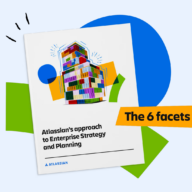People power the path to AI innovation
Monthly insights into human-AI collaboration – and how to make it work for your teams.
July 2025 edition
Does ChatGPT make us lazy thinkers?
As generative AI tools like ChatGPT become a part of daily life, new research from MIT suggests that over-relying on these tools for complex writing tasks can interfere with the way we think.
The big picture: Creative outsourcing and cognitive debt
The researchers had participants write essays over a four-month period while monitoring their brain activity with EEG machines. Fifty-four participants were divided into three groups: a group that used ChatGPT, a group that used online search, and a group that used no tools. The results were striking: People using AI showed much less brain activity than those doing the work themselves. Search users fell somewhere in the middle.
The pattern was clear – the more help people got, the less their brains engaged with the tasks at hand.
These consequences were lasting. After four months, participants who relied on ChatGPT showed lower memory recall and weaker brain activity. When these participants later tried to work without AI, their brains struggled to engage properly, as though they had forgotten how to think deeply on their own – an outcome the researchers describe as “cognitive debt.”
The takeaway: Humans belong in the driver’s seat
More research is needed to determine whether these early findings might apply to situations outside of students writing essays. However, the study aligns with what we already hold true – that AI is most effective as a tool for empowering teams, and not as a replacement for people and the ideas only human minds can create.
Discussing the MIT study on X, Wharton professor Ethan Mollick proposes a new paradigm for using AI as a support tool for complex learning: to treat it as a tutor. “If you use AI to do the work (as opposed to using it as a tutor), you don’t learn as much,” Mollick writes.
AI agents need managers, too
AI agents have gotten lots of buzz for their ability to take on complex tasks. (For example, we use personalized AI agents here at Atlassian to accelerate the onboarding process for new hires.)
But just like human employees, these powerful assistants need guidance in order to do their best work.
The big picture: Agentic AI enters its oversight era
AI agents are increasingly being understood as “digital workforce members” that require oversight, rather than fully autonomous helpers. In recent months, several enterprise companies have launched AI agent management systems that aim to facilitate oversight, communication, and collaboration between agents.
ServiceNow’s AI Control Tower, Workday’s Agent System of Record, Google’s Agent2Agent Protocol, Microsoft’s Copilot Studio and, of course, Atlassian Rovo are just some of the latest platforms designed to make it easier for leaders and team members to coordinate between agents and take charge of what their agents can do.
The takeaway: AI management systems are here to stay
Stanford emeritus professor Yoav Shoham is one of numerous top AI experts to have said that unified LLM systems are necessary to keep agentic AI safe and useful. These kinds of platforms are almost certain to become more and more integral to the way AI gets used moving forward.
Click below to learn more about Rovo, Atlassian’s AI-powered solution for search, chat, studio, and agents.









































